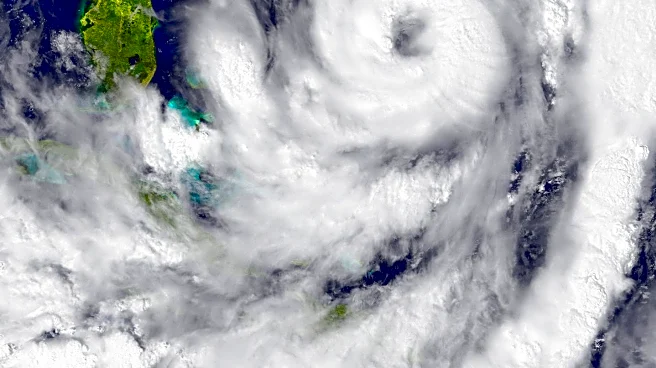What's Happening?
Researchers are examining the phenomenon of post-traumatic growth among survivors of Hurricane Katrina, which struck the U.S. 20 years ago. This concept, coined in the 1990s, refers to positive psychological growth following traumatic events. Sociologist Mary Waters from Harvard University has found that individuals who experience strong PTSD often report significant personal growth. NhuNgoc Pham, a researcher at Tulane University and a Katrina survivor, has studied over 300 survivors, noting shared experiences of growth. This research aims to inform disaster relief efforts by understanding how individuals can grow from trauma.
Why It's Important?
Understanding post-traumatic growth is crucial for improving disaster relief strategies. By recognizing the potential for positive psychological development, relief efforts can be tailored to support survivors in harnessing this growth. This approach could lead to more effective recovery programs, helping individuals rebuild their lives and communities. The research highlights the resilience of survivors and the importance of addressing both the psychological and practical needs in disaster recovery.
What's Next?
Future research may focus on integrating findings into disaster relief policies, potentially influencing how support is provided to survivors of natural disasters. Researchers might explore how to foster environments that encourage post-traumatic growth, ensuring that relief efforts not only address immediate needs but also promote long-term psychological well-being.
Beyond the Headlines
The study of post-traumatic growth challenges traditional views of trauma recovery, suggesting that adversity can lead to significant personal development. This perspective may influence broader societal attitudes towards trauma and resilience, encouraging a more nuanced understanding of recovery processes.









